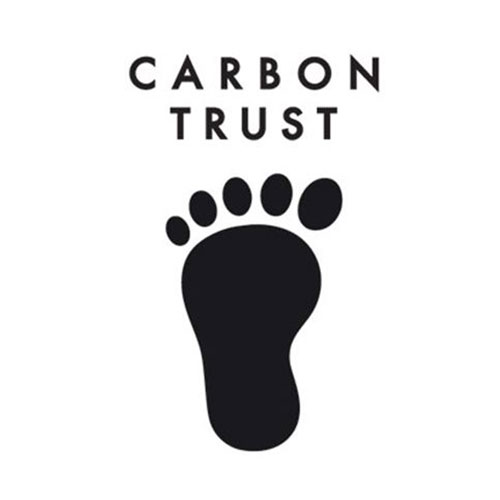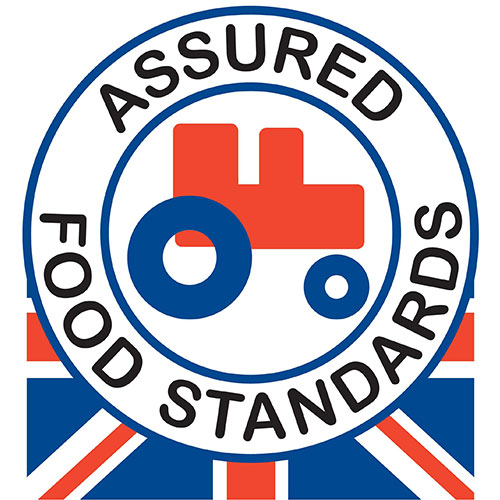10 steps to eating more sustainably

When buying vegetables, the best port of call is to buy direct from farmers or markets. Most of the time these vegetables come with the roots and leaves still attached which shows the freshness of the vegetable. One of the biggest sources of waste is the lack of knowledge on how to use the entire vegetable and not throw these roots and leaves away. For example, cauliflower and broccoli stems are still edible, as is the entire stick of celery! Stems of herbs: all edible, all tasty!
Most of the time it works out cheaper to make a large meal, portion it and freeze the leftovers. For example, if you fancy lasagne, why not bake a large one and freeze the extra portions. This allows you to simply defrost each portion as and when you need it, rather than having to continuously bake a meal for one every night which can be tricky and expensive! This is also a great way to reduce waste and unnecessary shopping, and you can plan your meals in advance!
You know where the food has come from, it is fresh, and you are positively impacting the agriculture industry in the UK. Also you usually get more for your money as you are not paying for packaging!
Instead of buying a single onion when needed, it is cheaper to buy a bag of three! These can be stored easily as with most other individual items, and used when needed. And for those seasonal products that you can’t find out of season, why not buy them in bulk and freeze them? Or perhaps make a pickle to preserve these seasonal delights so you can have them when you like. Instead of buying chicken thighs and breast separately, why not buy a whole chicken and simply section off when needed?
As our demand for products grows uncontrollably, many farmers are faced with the issue of production over wellbeing. We have all seen images of caged animals, or mass produced chickens, they are not nice are they? Free range offers animals the best possible life prior to the production process. Free range and higher animal welfare standards mean animals are uncaged and free to graze the land naturally. This offers them the best natural life, and it shows in the improved quality of their meat! You can buy a wide range of animal products as free range higher animal welfare, such as eggs, poultry, fish and meat.. Better still; look for meat products which contain the RSPCA Freedom Foods mark or are certified organic.
Click here for an explanation of the labels you should look out for and what they mean for the welfare of the animals.
As always, organic is best! These products are free from preservatives and chemicals which are used to preserve the life of the product. Organic food is fresh and safe, and they are the most local products around. Unlike before, local producers now offer a wide range of products formally only available overseas. You can now find local and organic fruit, honey, nuts, teas and jams! When they are produced around the corner, helping the local community, why wouldn’t you go organic?
To be vegetarian or vegan can be a challenge to the everyday routine. We all understand how much this nation loves meat and the difficulties faced when giving it up fully. However, many people have started eating less meat. It is proven to boost health and fitness and it’s a simple change which could improve many aspects of your life. With schemes such as
Part Time Carnivore which allows you to select days for non-meat eating or sampling the wide ranges of meat alternatives, this will open your eyes to the expanse of healthy vegetarian and vegan choices available. Visit
The Vegetarian Society for more information including recipe ideas.
With the sales of allotments at a sky high, and edible gardens dotting up everywhere, it is a great time to exercise your green fingers - and it’s easy! You can buy small hanging containers for those with no outside space. These allow you to grow a variety of things practically anywhere! Why not get involved with a local community garden scheme? Many communities offer keen growers a wide selection of spaces to get stuck in to, the possibilities are endless! And you can see the benefits when you get to enjoy your hard work at the end of it. Join us in a spot of gardening at the on-campus Edible Garden every Wednesday, 12-2pm at Avery Hill (behind the David Fussy building). It’s fun and sociable and volunteers are free to take leftover produce home with them! Also, the University of Greenwich has a limited number of FREE Grow Your Own basil and chilli plants for students – email Maria on mbyhorn@gmail.com to request yours!
With more and more people looking to get creative in the kitchen, now is the time to dig out that old recipe book and try something new. This allows you to use new products you wouldn’t normally use, and explore a wide range of flavours. To keep in line with the technical revolution, you can now find a variety of Apps with copious recipes, allowing for easy access such as the wonderful Marks and Spencer’s M&S Cook app available for free at the app store. And why not try some vegan recipes? Purefect.co.uk offer a great range of fun vegan recipes for every occasion.
Many food items are now part of an accreditation scheme. Read below for more information
What’s in the Logo
Local producers
 |
This certifies that the product or food ingredient has met minimum social, economic and environmental standards, including fairer prices that cover better working conditions, and encourages continuous protection of workers’ rights and investment in business and community development. It now appears on a wide range of products such as coffee, chocolate, bananas and other fruits, cakes, biscuits, herbs and spices and wine. |
 |
Carbon Footprint Label This shows the amount of carbon dioxide (CO2) and other greenhouse gases, which contribute to global warming, emitted as part of a product’s manufacture, distribution, use and disposal. Companies who label their products have measured their product’s carbon footprint according to a British Standard and are committed to reducing it within two years. Some products now using this include Tesco orange juice and milk, Kingsmill bread, Tate and Lyle sugar and Walkers crisps. |

|
This certification indicates that the practices used to produce the food (or a specific ingredient used in the food) take account of the impact on natural resources, the environment and local communities. It appears on products such as coffee, cocoa, chocolate, tea, nuts and fruits. |

|
Organic Standard Organic food has to comply with EU legislation and is certified by different bodies. The Soil Association is the main one in the UK. Its standards emphasise a holistic approach to the protection of wildlife and the environment, for example: the use of pesticides and artificial food additives and chemical fertilisers are limited; animal cruelty is prohibited and a free-range life for animals is specified. The use of GM in animal feed is banned. A broad range of products, from fruit and vegetables to farmed salmon and processed foods carry the logo. An EU-wide logo to indicate organic foods now has to be included as well as that of the certification body. |

|
The Marine Stewardship Council (MSC) provides independent certification of fish from wild capture fisheries, but not farmed fish. The MSC approves fisheries according to its environmental standards, but also requires all companies in the supply chain that want to use the label to be certified as well so that there is effective traceability. Its fishery standards are based on ensuring that fish stocks are maintained at sustainable levels and that the impact on the marine ecosystem and the long-term sustainability of the fishery are effectively managed. |
 |
The Red Tractor can only be used on food that has been produced, packed, stored and transported to Red Tractor standards. The standards focus on measures to improve food safety and animal welfare. It can be found on fresh meat, produce and cereal and dairy products. The Red Tractor standards also underpin some of the other schemes and retailer standards. |
Peter de Wits Cafe
21 Greenwich Church Street
London
SE109BJ
United Kingdom
|
The Cheeseboard - Greenwich
26 Royal Hill
Greenwich
SE108R
United Kingdom
|
Surrey Docks Farm
South Wharf,
London
SE165ET
United Kingdom
|
Blackheath Farmers Market
Station Car Park,
Blackheath Village
SE37AG
United Kingdom
|
Ayurveda Pura Ltd
48 Newton Lodge,
Oval Square,
Greenwich Millennium Village,
W Parkside, London SE10 0BA
|
Peckham Farmers Market
Peckham Square (covered market)
Peckham High Street
London SE15 5DT
|
John Wrake & Son
28 Muirkirk Rd
Catford
SE61BE
United Kingdom
|
Queen Mary farmers market
The Curve, Westfield Way,
Queen Mary University of London,
E14NS
London
|
Stepney City Farm
Stepney City Farm
London
E13DG
United Kingdom
|
Newham City Farm
King George Avenue,
London
E163HR
United Kingdom
|
Borough Market
Neal's Yard Dairy
8 Southwark Street
SE11TL
United Kingdom
|
Franklins Farm Shop
155 Lordship Lane
East Dulwich
SE228HX
United Kingdom
|
Nim's Fruit Ltd
Dalton House 60
Windsor Avenue
London
SE266JA
United Kingdom
|
Well Being Health Foods
19 Sydenham Road
London
Se265ex
United Kingdom
|
Dulwich Farmers Market
Dulwich College
Dulwich
SE217LS
United Kingdom
|
Helpful Websites
Part-time Carnivore - www.parttimecarnivore.org
Fairtrade - www.fairtrade.org.uk
BBC Good Food Vegan Recipes - www.bbcgoodfood.com/recipes/collection/vegan
British Nutrition Foundation - www.nutrition.org.uk/healthyliving/healthyeating
Marks & Spencer Food - www.marksandspencer.com/Food
Sustainable Food Trust - www.sustainablefoodtrust.org
Apps
Chemical Cuisine - iOs / Android
Dirty Dozen - iOs / Android
Seafood Watch - iOs / Android
Food Tripping - iOs / Android
Fooducate - iOs / Android
Seasonal & Simple - iOs / Android
Whole Foods Market Recipes - iOs